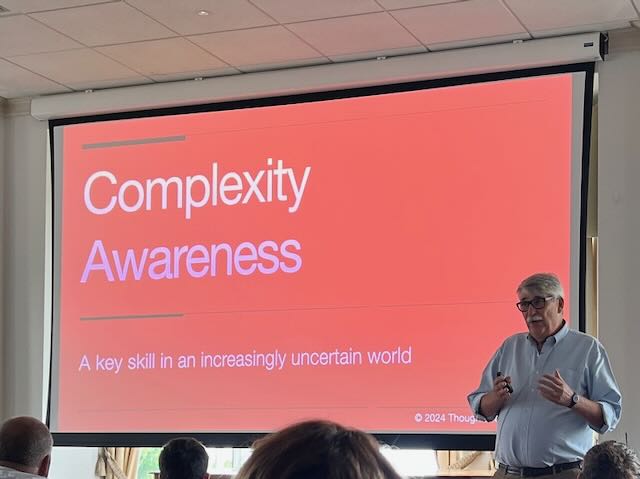In an ever-changing world, complexity awareness has become a pivotal concept for effective leadership and problem-solving. Whether you’re grappling with societal issues, navigating business challenges, or simply trying to make sense of everyday life, understanding the difference between what is merely complicated and what is genuinely complex is crucial. This is the essence of a presentation I recently delivered, where I unpacked the nuances of complexity awareness and provided actionable insights for embracing uncertainty.

Why Complexity Awareness Matters
Too often, we find ourselves leaning towards simple solutions in the face of intricate problems. This impulse to oversimplify can lead to misguided strategies and ineffective outcomes. In my presentation, I emphasize the distinction between complex and complicated scenarios, using real-world examples such as societal interdependency, criminality, and political issues like Brexit. Recognizing the unique characteristics of these situations allows us to approach them more thoughtfully and strategically.
Breaking Down the Framework
The framework I discuss, developed by Dave Snowden, categorizes scenarios into four types: clear/simple, complicated, complex, and chaotic. Each category requires a different approach:
Simple: Best practices are well-defined.
Complicated: Requires expert analysis and good practices.
Complex: Involves emergent practices and calls for adaptability and experimentation.
Chaotic: Demands novel practices and immediate action to restore order.
Understanding where a situation falls within this framework helps in choosing the right tools and approaches.
The Human Element in Complexity
Our tendency to seek control, crave consensus, and desire predictable outcomes often hinders our capacity to manage complex situations effectively. During the presentation, I delve into the concept of sense-making—gathering information, testing assumptions, and taking action—to navigate complex scenarios. It’s about being comfortable with uncertainty, holding space for diverse perspectives, and remaining present and transparent as a leader or consultant.
Invitation for Further Exploration
If you found these insights intriguing and wish to delve deeper into complexity awareness, I invite you to get in touch.
Feel free to connect with me via email or LinkedIn.
Understanding complexity is not just an academic exercise; it’s a vital skill for navigating today’s unpredictable world. By embracing this framework and fostering a mindset open to uncertainty, we can become more effective leaders, consultants, and problem-solvers.